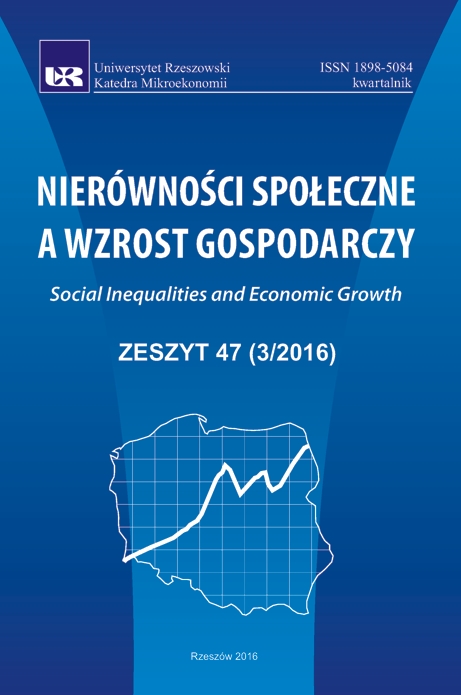Polityka społeczna jako instrument spójności Unii Europejskiej
Social Policy as an Instrument of European Union Cohesion
Author(s): Bogumiła Mucha-LeszkoSubject(s): Economy, Supranational / Global Economy, Economic policy, Welfare systems, EU-Approach / EU-Accession / EU-Development, Socio-Economic Research
Published by: Wydawnictwo Uniwersytetu Rzeszowskiego
Keywords: European social model; development barriers; convergence and divergence
Summary/Abstract: The subject of the paper is an analysis of the European integration process in the field of social policy and an assessment of the significance of that policy in the European social dimension creation. The socio-economic cohesion indicators show a wide diversity among the Member States in terms of social protection level and their divergence has deepened since 2008. The analysis suggests that the recent financial-economic and debt crisis has substantially contributed to the decrease in economic and social cohesion of the EU which is one of the major factors hindering the development of the European social model at the current stage of integration. The EU countries can be divided into three groups: 1) the Northwest countries (9), 2) the Southern countries and Ireland (6), 3) Central and Eastern European countries (11). Countries from the 1st group (Scandi-navian countries, Belgium and the Netherlands, as well as France, Austria and Germany) have maintained their advantage in raising economic and social standards in comparison to the EU average (with the exception of the UK). In the 2nd group (the Southern countries) divergence indicators have increased, particularly in Portugal, Spain and Greece, however, divergent processes have also occurred in Italy and Cyprus. Central and Eastern European countries have been extremely varied, but divergence indicators had been lowering in five of them and their position against the Southern countries has been improving. Other factors delaying harmonization of social policies at lower stages of integration have also been identified, which were: 1) the neoliberals’ heavy impact on concepts and plans for the development of integration at the various stages and focusing attention on the economies of scale, 2) the diversification of welfare state models in the Member States and of the social needs funding level, 3) the lack of social policy development strategy, 4) the welfare state policy crisis, 5) monetary integration and the need to meet the Treaty criteria for monetary union, involving a fiscal balance improvement and public debt reduction.
Journal: Nierówności Społeczne a Wzrost Gospodarczy
- Issue Year: 2016
- Issue No: 47
- Page Range: 193-204
- Page Count: 12
- Language: Polish

